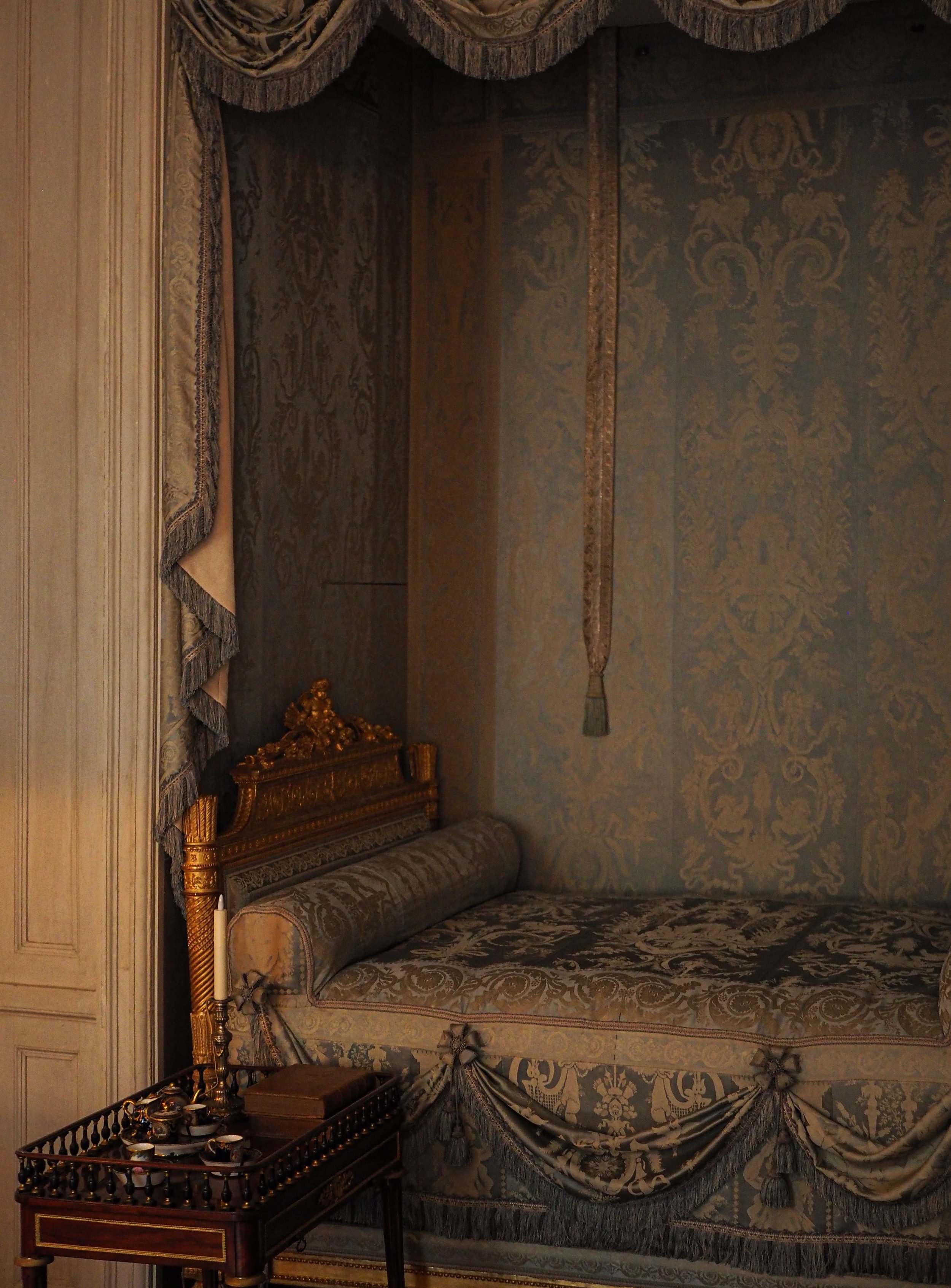Desperate for Heaven

Desperate for Heaven
Hannah Comerford
As a child, I was afraid of Heaven. It wasn’t so much about death, but the idea of being in Heaven forever sounded boring and lonely. I worried I’d miss my dog and cats and summer camp and all the places in the Pacific Northwest I loved. I felt I should want to be there, but I couldn’t muster up the courage to pray for God to return.
And then I read the final book of the Chronicles of Narnia, The Last Battle. The cover of my paperback seemed made for a slightly melancholy child like me—featuring a white unicorn looking backward, blood dripping from its horn. Something terrible had happened in this magical world, but this creature sought something hopeful.
As the book progresses, Eustace and Jill find themselves caught up in a war between those following Aslan, the Christ figure, and those following an imposter in a ratty lionskin. With every trace of hope they find in the battle, another character dies or another fight ends in loss. Before long, it’s clear the children—and Narnia as a whole—will not win.
But then the protagonists arrive in the afterlife. Narnia is destroyed, but in its place is a Heaven fashioned after it. Far from boring and drab, this Heaven includes everything good in Narnia—and even our world—without the attending sadness and evil. The children who fought desperately and suffered tragedy for Aslan find themselves in the rolling hills of the Narnia they knew and loved, surrounded by their treasured friends and family.
This was an afterlife I could imagine enjoying.
*
When I was seventeen, my mom died suddenly. Without family nearby to take me in, I found myself living in the home of a couple who didn’t know how to parent a teenager, including a mother who was controlling at best and verbally abusive at worst. Lying in my basement room one night, sobbing after a fight over a curfew I didn’t know I had, I returned to the Narnian vision of Heaven. Maybe in this Heaven I would find the peace I longed for. Maybe I’d see my mom again. Maybe I would see the dog, the cats, the rabbits, the horses I’d lost. Maybe I’d somehow have a version of the home I’d left behind, with its fields of tall, yellowed grass and its old white ranch house. Why wouldn’t God let me go to this Heaven now?
But I survived. I made it to college, where I found friends and love and stability and more purpose to my days. And I stored the Narnian Heaven on a shelf—the wonderful someday. I could wait. But now, a decade later, I’ve taken this vision down again. More desperately than ever, I want it to be real.
*
My husband, Jason, and I both knew we were entering the hospital without hope. I only came because I was taking blood thinners and I was afraid of bleeding to death in my apartment. I did not cry when the doctor told me I was likely miscarrying, even though Doctor Matt’s eyes seemed a moment from shedding their own tears. His voice was gentle, so hesitant to claim anything he didn’t know without proof of an empty ultrasound image. I couldn’t cry in his presence—he was too kind, had been given too cruel a job.
Hours into our visit, Jason and I waited alone in the small emergency room. We made half-hearted jokes about how Dr. Matt looked like a character from Game of Thrones, with his slicked-back, long, red hair and full beard. We talked about the awkwardness of waiting and waiting and waiting for my distracted nurse to collect my urine sample. We groaned when the intercom announced a test of its system for the second time.
Above the noise of beeping machines, coughing adults, and crying children, a jingle played: “Twinkle, Twinkle, Little Star.”
“That’s weird,” said Jason.
I’d heard it before when visiting friends.
“They do that when a . . . when a baby is born.”
*
The other day, I read a devotional for the grieving, and one Bible verse brought me to a halt: “He will wipe away every tear from their eyes, and death shall be no more, neither shall there be mourning, nor crying, nor pain anymore, for the former things have passed away” (Revelation 21:4).
I remembered the Heaven I glimpsed from Narnia’s end. Even with its enticing view of the afterlife and apocalyptic plot, The Last Battle is still a fantasy. Earth is more complicated, and we don’t really know how God will restore the world.
I don’t have much of a theology for the end times. I don’t believe in a rapture of Christ’s followers before a tribulation. I don’t know about fire and brimstone, and I doubt the existence of one Antichrist deceiving the world. But I do believe someday, somehow, God will right all wrongs.
But that day is much too distant.
*
Our trying for pregnancy had been a new experiment, a secret between only my husband and me. We’d been told not to expect any results. But then, while we were visiting my in-laws, my cycle didn’t start.
Like teenagers, Jason and I found an excuse to visit Wal-Mart and buy a $3 pregnancy test. I hid the contraband in my purse until my in-laws were safely in bed. Jason waited in the guest bedroom. I read the directions three times, terrified I would hold the stick wrong, misunderstand the lines, pee in the wrong place—no matter the results, I was sure I would fail.
Moments later, I shakily showed Jason the stick.
“It’s very blue,” I said.
He looked at the line, at my trembling hand, my dumbstruck face.
“You’re very pregnant,” he said, shocked, amazed, anxious laughter boiling over his words.
I was pregnant.
Yet as the blood diminishes and the pain subsides, I’m left with no proof. I threw out the test. We never took an announcement photo. I don’t even own a copy of the ultrasound photo showing the tiny empty sac.
But I do have memories. The strong blue line of the pregnancy test, the daily fatigue relegating me to the couch, the unexpected bouts of ravenous hunger. The symptoms I logged faithfully each day on a phone app. Reminders that this wasn’t a dream.
If Heaven really is all the good of this world and none of the bad, will I have some sort of proof beyond a list of maladies? In Heaven there may be no more marriage, but might we still have a piece of that happiness we expected? We don’t need a mansion—just give us a cottage in the New Earth, wherein we spend days with the child we would never meet.
*
When Jason prays about our lost child, he feels it was a son. I imagine a daughter, but I can’t pray about her lifeless form. I have few prayers these days, other than “Lord, help.” I don’t hear any answers above my own thoughts. When I think of my child, floating to the forefront of my mind is a name taken from a Brave Saint Saturn song: Anastasia, meaning “the resurrection.”
The only gift our child received before she was gone was a thick hardback book, The Jesus Storybook Bible. The retelling of the book of Revelation includes this description:
And the King says, “Look! God and his children are together again. No more running away. Or hiding. No more crying or being lonely or afraid. No more being sick or dying. Because all those things are gone. Yes, they’re gone forever. Everything sad has come untrue. And see—I have wiped away every tear from every eye!”
Perhaps I should be finding hope in my future earthly life, a vision of myself writing without tears again, laughing with friends’ children, feeling joy from my husband’s touch. Grieving entails acceptance of your new life—a life that’s not normal, but a semblance of how it was. But I can’t find that hope yet. As the joy of my pregnancy has come undone, my only hope is that even this endless grief will come untrue. That maybe there is something more deeply true in store.
*
During my undergrad, I took a class called Art of the Book, focusing on both using ancient printing presses and exploring unique mediums for literary art. For one project we were given a collection of odds and ends and tasked with using them within an art piece. I chose a miniature landscape painting and a small mirror, like what one might find in a dollhouse. I folded paper accordion style on either side of cardstock, left the painting hidden from view at the front, the mirror toward the back, so when one looked through a cutout they’d see the reflection of the painting.
On the outside of the art piece, I wrote in my best cursive a quote from The Last Battle:
“It is as hard to explain how this sunlit land was different from the old Narnia, as it would be to tell you how the fruits of that country taste. Perhaps you will get some idea of it, if you think like this. You may have been in a room in which there was a window that looked out on a lovely bay of the sea or a green valley that wound away among mountains. And in the wall of that room opposite to the window there may have been a looking glass. And as you turned away from the window you suddenly caught sight of that sea or that valley, all over again, in the looking glass. And the sea in the mirror, or the valley in the mirror, were in one sense just the same as the real ones: yet at the same time they were somehow different—deeper, more wonderful, more like places in a story: in a story you have never heard but very much want to know.”
This description haunted me half my life. The image in the mirror was intangible, ethereal, a reality that wasn’t quite understandable as a ten-year-old or as a college student—nor is it fathomable as a woman approaching her thirties. But somehow I knew it was true: there is a reality that is somehow deeper and more beautiful than what we know, but it’s also impossible to catch hold of this side of eternity.
More than anything, I want this mirror image now.
Lord, come quickly.
Hannah Comerford
Writer & Editor
Hannah has been published in Fathom, Soundings, Legible, and Saxifrage. She is the Associate Poetry Editor for Fathom and the Outside Experience Coordinator for the Rainier Writing Workshop. You can find more of her work at www.hannahcomerford.com
Photography by Klara Kulikova




